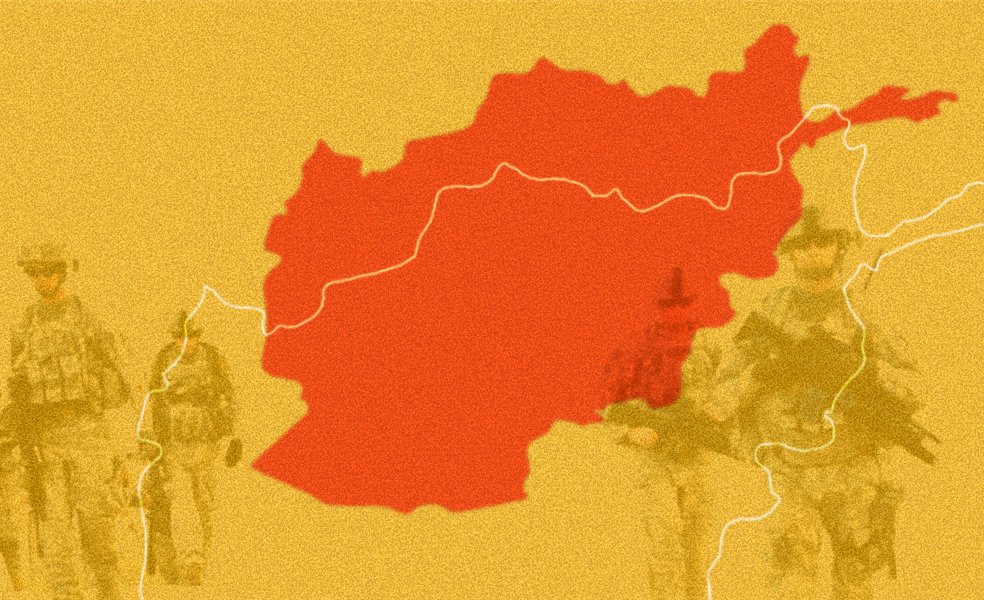After 20 years of war in Afghanistan, President Joe Biden recently made the decision to fully withdraw U.S. forces from the country. The U.S.-backed Afghan government quickly collapsed and the Taliban, which harbored Al Qaeda before the 9/11 attacks, regained control. The U.S.’s failure to ensure a smooth pullout poses dangerous consequences for innocent Afghans, and has already led to the deaths of at least 60 at the Kabul airport.
In the wake of the withdrawal, mainstream coverage has centered criticism on Biden, building arguments on perspectives from people responsible for two decades of failure in Afghanistan. Ignoring the misdeeds of officials from past administrations to blame Biden, particularly after lauding his administration consistently so far, is leading to a distorted narrative on America’s wars.
As Popular Information’s Judd Legum detailed, former CIA Director and Secretary of Defense Leon Panetta spent years of the past decade doling out assurances that the war was making “progress” and that Afghanistan would soon be able to govern itself. Despite his false predictions, Panetta has recently been quoted by Fox News, the New York Post, The Hill, MSNBC, NBC News, the New York Daily News, CNN and many other outlets.
A piece by The Washington Post, which was presented as “straight news,” quoted Panetta’s criticisms of Biden’s withdrawal alongside those of Ryan Crocker, former Ambassador to Afghanistan during the Bush and Obama administrations, who covered up a massive loan fraud scandal; and Eliot A. Cohen, a prominent hawk and adviser to Secretary of State Condoleeza Rice during the Bush administration, who recently called for “a substantially larger military,” more wars, and opening the U.S. to using nuclear weapons. The Post neglected to examine these pundits’ shady histories or invite any voices that supported the exit of U.S. forces.
Popular Information further explained that this may be part of a concerted effort; according to a veteran communications professional, it has been nearly impossible to place prominent voices supportive of the withdrawal on television and in print. “In so many ways this feels like Iraq and 2003 all over again,” the source said, “The media has coalesced around a narrative, and any threat to that narrative needs to be shut out.”
This wave of mainstream focus comes after seven years of covering Afghanistan as an afterthought, according to Andrew Tyndall’s monitoring of war reporting—CBS, ABC, and NBC evening news broadcasts devoted an all-time low of just five minutes to the conflict throughout 2020.
When it has engaged with the Afghanistan war, “Mainstream media coverage … centered its reporting around supporting the U.S. occupation,” wrote Media Matters. “Even as tens of thousands of Afghan civilians died and billions of dollars poured into ‘nation-building’ initiatives that weren’t achieving results, media efforts to cheer on the war continued. ” So far this year, media has continued to ignore the complete story of the U.S. conflict by framing the Taliban resurgence as new, casting the U.S. as protectors of Afghan women and human rights, and advocating for continued war.
Two major arguments are being presented: Biden’s withdrawal was poorly executed, and the U.S. should have retained its military presence indefinitely. Regardless of the questionable value of these arguments, media should present opinions to consumers from supporters of the exit, too, rather than only from a deluge of Bush-era officials.
For Jacobin, Branko Marcetic writes,
“Everything about the press treatment of Afghanistan — the quantity of coverage, its tone, what’s underlined and what’s left out, who’s asked to weigh in — is a choice. Right now, those choices are being made to punish a president who defied the vast, unelected permanent government within the national security bureaucracy, and to undermine one of his major policy decisions by campaigning for renewed US military involvement.”
Biden’s complete withdrawal of U.S. forces demands a more critical look at the history of past administrations’ actions in Afghanistan. After years of bloodshed, media should ask if the first president to end the decades-long conflict deserves as much commendation as those who perpetuated it.
Image by Andrea Austria / Media Matters

